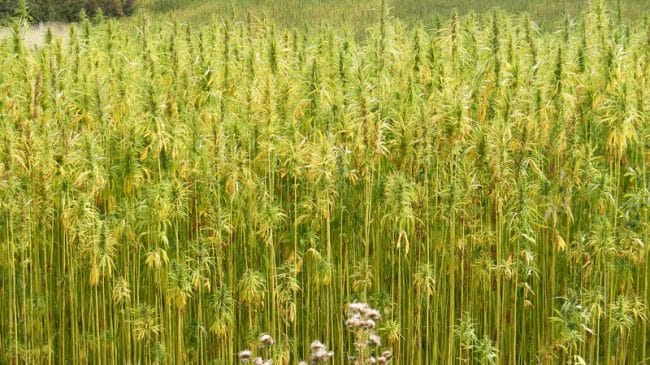Los Angeles (March 13, 2008) – With oil hitting $110 a barrel and gas prices creeping towards $4 a gallon, the federal government continues to prohibit U.S. farmers from growing hemp, which could be used to efficiently produce biofuels, including cellulosic ethanol.
Hemp is also a cost-effective, environmentally-friendly substitute for polyester, cotton, fiberglass and concrete, according to a new Reason Foundation study that examines hemp’s potential uses and the ways other countries are benefitting from it. Industrial hemp production is banned in the U.S. as an archaic consequence of the war on drugs.
“There are numerous environmental advantages to hemp,” said Skaidra Smith-Heisters, a policy analyst at Reason Foundation and author of the report. “Hemp often requires less energy to manufacture into products. It is less toxic to process. And it is easier to recycle and more biodegradable than most competing crops and products. Unfortunately, we won’t realize the full economic and environmental benefits of hemp until the crop is legal in the United States.”
The Reason Foundation study reveals that polyester fiber manufacturing requires six times the energy needed to grow hemp. And cotton is one of the most “water- and pesticide-intensive crops in the world.” Hemp’s naturally higher resistance to weeds and pests means it requires dramatically fewer pesticides than cotton.
Not only has the government banned hemp production in the U.S., it is also directly subsidizing other crops that the study shows to be “environmentally inferior.” Corn farmers received $51 billion in subsidies between 1995 and 2005; wheat farmers were given $21 billion; cotton farmers fleeced taxpayers for $15 billion; and tobacco farmers were handed $530 million in taxpayer-funded subsidies.
The Reason study says the Drug Enforcement Administration’s inability to distinguish between industrial hemp and marijuana is irrational and ignores scientific fact. The report states, “Marijuana cultivated for drug value contains between 3 and 10 percent of the active ingredient, tetrahydrocannabinol, or THC. Industrial hemp typically contains 0.3 percent or less of this active ingredient-as a result, it has no value as a drug.”
Full Report Online
The full study, Illegally Green: Environmental Costs of Hemp Prohibition, is available online at: www.reason.org/ps367.pdf. A summary of the report is here: www.reason.org/ps367polsum.pdf.
About Reason Foundation
Reason Foundation is a nonprofit think tank dedicated to advancing free minds and free markets. Reason Foundation produces respected public policy research on a variety of issues and publishes the critically acclaimed monthly magazine, Reason. For more information, please visit www.reason.org.
Contact
Skaidra Smith-Heisters, Policy Analyst, Reason Foundation, (707) 569-9279
Chris Mitchell, Director of Communications, Reason Foundation, (310) 367-6109
